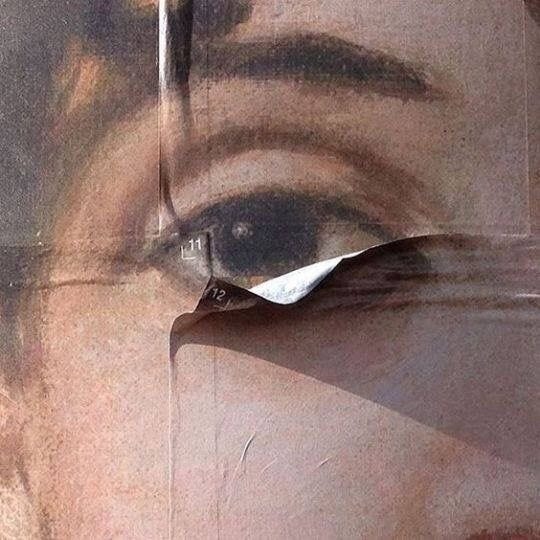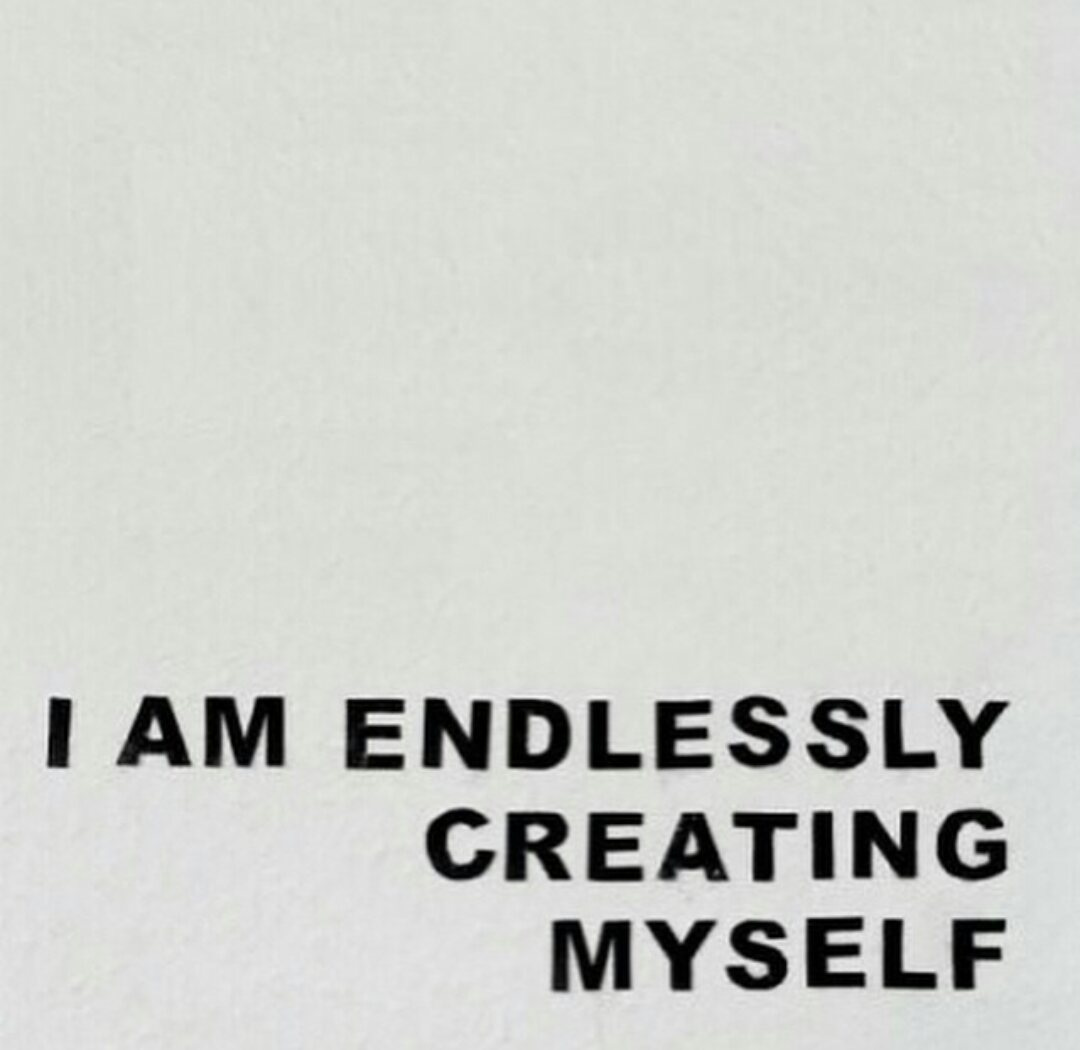Headwaters 6-week long writing course begins in October 2025! We will work through creative blocks and dive into authentic writing. You can find all the information about the course here. 𖦹
Last week I published an article on How Writing in Public Will Change You.
Dozens of readers and writers have resonated with the resistance towards selfishness in the creative process. This is alive in me now.
(I will be diving deep into this topic in my upcoming course on writing. Registration opens in a couple of weeks. Subscribe to be updated.)
I have a lot to say about that. For most of my life, I resisted investing in my creativity.
I imagine you too, no?
In the last article, I wrote:
Writing will show you how afraid you are to tell your own story.
Recently I learned that those of us who have experienced insecure attachment in childhood (and adulthood), learn to focus mostly on others. Focusing on the self becomes uncomfortable, alien, “selfish”.
Self is an unknown ecology. Getting lost in the woods of other grants a permission to forget about our own needs, our own opinions, our own desires.
With the inner and outer eye fixated on other, many people (especially women) end up in roles that are supportive, rather than creative. Working in the background. Working for someone else. Building someone else’s product. Promoting someone else’s ideas, while your own heart bursts with desire for something of your own.
But when you write, you have to cross this deeply uncomfortable line of self-focus: to face your experience, your feelings, your thoughts.
Writing is not about transcending the ego, it’s about developing a healthy ego that can support our work and put it out into the world.
Focus on the other becomes familiar to the nervous system. Once you start directing yourself towards yourself, you see how much you have missed. All your artistic and creative inclinations unwatered for years. So many notes, letters, calls — missed from the inner creative.
Most of my early 20’s I had a fixation that I wanted to heal the world. But after some eye-opening experiences I realized that my desire to save the world was me hiding from myself. I didn’t want to pay attention to myself.
Secretly, I was obsessed with artists who were just creating.
They were not here to ‘heal the trauma’. They didn’t bear the weight of the world on their shoulders. They were here just to create and share their art with the world.
I was so jealous of this internal freedom. Freedom not to carry world’s disasters in your main line of work, directly.
Yes, art heals, stories heal. But they are not about healing explicitly, they never talk about healing directly.
The most beautiful poems, stories, and music walk graciously around it.
I knew it tacitly, but I couldn’t explain it verbally. It took me years to recover the artistic self, to prioritize it, and to step into a creative life. I’m still on the journey. I struggle beside you.
Rejection of the Self
If we don’t experience security in our attachment to parental figures (as children and young people), we learn that it’s not safe to tend to our own needs and who we are inherently.
It becomes unsafe to look at ourselves, explore ourselves, and explore the world through our eyes. If we are asked to sacrifice our authenticity in relationships with our caregivers, we will learn to sacrifice ourselves for the world.
The world, read: family, friends, boss, work, organisation, cause, country, community.
How are you sacrificing your inner artist for a society that gives nothing in return?
The world is on fire. We are facing genocides, ecocides, biodiversity loss, wars, melting of glaciers, refugee crisis, and democratic derangement.
But it’s not for you to hold all of this alone.
With your soul buried under self-rejecting career choices, you will not reach the impact you wish you could have.
I keep thinking of this story of Justin Vernon (Bon Iver) almost resigning himself from his artistic career in music and becoming a music teacher somewhere in the Midwest, US.
I’m sure his music changed and saved many many lives, without an intention.
This is the paradox of art: by consciously pursuing what feeds your soul, you feed the world.
Who if not artists are here to revive souls after the forest fire of our collective psyche?
During my recent visit to Scotland, my mother said to me:
“Rūta, just live your life for yourself. Stop trying to save the world and to change the systems.“
For the first time, I can hear what my mother is saying.
To live for oneself truly is to live for all. To live for all is to never truly live for yourself.
Self-sacrifice allows you to avoid taking responsibility for your path as a creative.
The sacrifice that we see glorified in our culture perpetuates the capitalist system. It needs people who surrender their own worth and needs: their time, their creativity, their energy, and their talents are swallowed by the machine.
As I mentioned previously, those of us who have a hard time prioritizing our own creative work and giving it the space, time, and energy that it needs, have most likely experienced insecure attachment early on in life. We have learned to bypass our own needs for the sake of social coherence.
We have learned to sacrifice and internalise the unworthiness of the authentic self.
This insecurity finds its way not just to your relationships with other humans (partners or friends), but also within your career (and most likely resources).
All of that is connected through avoidance of one’s true needs: to be fully seen, heard, understood, to be important.
We must abandon the idea that deciding to prioritize one’s own creative path is a selfish act.
The sacrifice of your authentic self is nothing but a bargaining for acceptance, a desire to avoid rejection and failure in the pursuit of a creative life.
One could say that self-sacrifice is more selfish than a self-centred creative pursuit: the first manipulates the external perception; the second actually liberates others through their art.
So, what is the medicine for all of this?
Mythologize Yourself.
“I suspected that myth had a meaning which I was sure to miss if I lived outside it in the haze of my own speculations. I was driven to ask myself in all seriousness: “What is the myth you are living?” I found no answer to this question, and had to admit that I was not living with a myth, or even in a myth, but rather in an uncertain cloud of theoretical possibilities which I was beginning to regard with increasing distrust. I did not know that I was living a myth, and even if I had known it, I would not have known what sort of myth was ordering my life without my knowledge. So, in the most natural way, I took it upon myself to get to know “my” myth, and I regarded this as the task of tasks…”
— C.G. Jung
You have to recover a secure relationship with yourself and your creative expression. One way to go about it is by understanding, revising, and telling your personal myth.
I am convinced that part of this process is dissecting the myths we unknowingly live out and choosing myths that can fuel our creative legacy.
I’ve been noticing a sort of trend that’s been taking off lately. Artists are mythologizing themselves. It happens when we continue telling our personal stories in a thousand different ways.
An example:
A writer can mythologize themselves through a hardship, such as a chronic illness. In the eyes of readers, they become a symbol of hope and healing to those who experience similar circumstances. The more frequently the story is told, the more we associate the writer with the theme. The writer becomes the mouthpiece for everyone who cannot tell their healing stories aloud. Every time we think or talk about this theme of chronic illness and healing, the writer comes to mind. They enter a place of mythic importance in the collective field. This is an example of mythologizing oneself to the degree that one becomes the symbol in others’ minds.
This is how creatives build audiences through personal myth.
A part of me is weary of this path. If unexamined, one can become and live out the myth they tell over and over again. Something that connects us to our audiences can solidify us in a stage of life, later calcifying us and prohibiting us from moving forward.
On the other hand, if consciously engaged in, self-mythologizing can open us toward new frontiers of creativity, transforming deeply engrained patterns, and expanding into the life that wants to live through us. For that, we must revise our personal mythologies.
As Rebecca Solnit puts it:
“We think we tell stories, but stories often tell us, tell us to love or hate, to see or be seen. Often, too often, stories saddle us, ride us, whip us onward, tell us what to do, and we do it without questioning. The task of learning to be free requires learning to hear them, to question them, to pause and hear silence, to name them, and then become a story-teller.”
Exercise
Journal these questions to understand your personal mythology better:
What story or pattern continuously repeats in my life that I cannot seem to break away from? What is the theme?
What things happened in my life that separate me from the “crowd”?
What life decisions have I made that drastically altered my fate? Am I about to make a decision that will change the course of my life?
What transformation did I undergo, or am currently undergoing that others can relate to and find solace in, if I share it?
If you take time to explore, your answers will be material for new writing, and ultimately, your personal mythology.

Would love to hear your personal myths, collected and told consciously or unconsciously! Have you noticed other creatives/writers/artists telling their personal myths?
In a couple of weeks, I am launching my new course on writing. I am gathering an amazing group of people who are committed to taking their writing to another level, connecting with their innermost artistic vision, releasing limiting beliefs, unblocking creative self-doubt, and surrendering into writing as a sacred practice.
Keep your eye out for further announcements here (Substack) and on my Instagram.
My current playlist: SUMMER IN SPHERES
Much love,
Rūta







You're a delight, and your writing and your mind always expand my own. xxx
🙌Wow!! 🙌What deeply insightful observations you make…you’ve nailed it! I feel like this piece just described my life!! If only I had known all of this many years ago. Thank you for the Journal questions, I look forward to trying these…